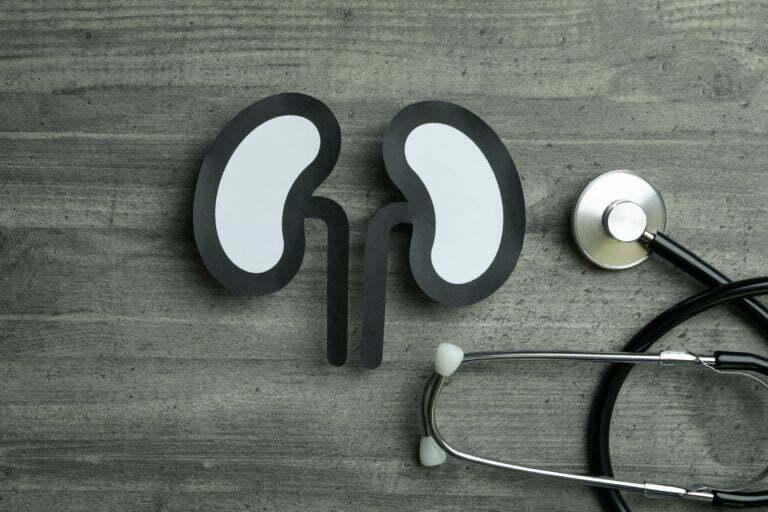Congestive Heart Failure (CHF) is a prevalent chronic condition characterized by the heart’s inability to efficiently pump blood, resulting in fluid retention throughout the body. It is a significant health concern affecting a substantial portion of the population and remains a leading cause of mortality. In fact, over 6.2 million people in the United States suffer from heart failure, and heart failure was indicated on 379,800 death certificates in 2018 (source: ahajournals.org).
Understanding the distinct stages of CHF is paramount for patients, their families, and healthcare providers alike. This knowledge empowers proactive management strategies, aids in preventing disease progression, and ultimately enhances patient outcomes. Incorporating remote patient monitoring can further optimize care by enabling continuous tracking of vital signs and early detection of exacerbations.
The Five Stages of CHF
CHF is a chronic heart disease when the heart cannot pump blood effectively. This can lead to a buildup of fluid in the body and cause various symptoms, including shortness of breath, fatigue, and swelling. The American Heart Association (AHA) has classified CHF into five stages to help understand the progression of the disease. By recognizing the specific stage of CHF, healthcare professionals can tailor their approach to care and interventions to address the unique needs of each patient. It is essential to seek medical advice and follow a treatment plan to manage symptoms and prevent the progression of CHF.
Stage A: High risk of developing heart failure
In stage A, individuals have a high risk of developing heart failure but have not yet developed any symptoms. This stage is characterized by risk factors such as high blood pressure, diabetes, and a family history of heart disease. In this stage, it is crucial to make lifestyle changes and seek medical advice to prevent the onset of CHF.
Stage B: Early heart failure
In stage B, the heart muscle has started to weaken, but it can still pump blood effectively. Individuals may experience mild symptoms, such as shortness of breath during physical activity or mild swelling in the legs. At this stage, treatment options may include lifestyle changes, medication, and monitoring by a healthcare provider.
Stage C: Advanced heart failure
In stage C, the heart muscle has become severely weakened, and symptoms have become more pronounced. This stage is characterized by shortness of breath, fatigue, and swelling in the legs and ankles. Treatment options may include medication, oxygen therapy, and devices to help the heart pump more effectively. In some cases, a heart transplant may be necessary.
Stage D: End-Stage heart failure
In stage D, the heart has stopped pumping blood effectively, and fluid buildup has become severe. Individuals with end-stage heart failure may experience a range of symptoms, including shortness of breath, fatigue, and fluid buildup in the lungs, making breathing difficult. At this stage, treatment options are limited and may include hospice care or palliative care to manage symptoms.
Stage E: Heart transplantation
A heart transplant is necessary for stage E to save the individual’s life. This stage only applies to individuals who are considered candidates for heart transplantation and have been approved for the procedure. A heart transplant replaces the damaged heart with a healthy heart from a donor, restoring normal heart function and improving quality of life.
Symptoms of Congestive Heart Failure
The American Heart Association lists common symptoms of CHF as follows:
- Shortness of breath, especially during physical activity or when lying down
- Fatigue and weakness
- Swelling in the legs, ankles, and feet
- Rapid or irregular heartbeat
- Reduced ability to exercise
- Persistent coughing or wheezing, sometimes with white or pink blood-tinged phlegm
- Abdominal swelling
- Increased need to urinate at night
- Sudden weight gain from fluid buildup
- Chest pain or discomfort

It’s important to note that CHF can develop gradually over time, and symptoms may not be noticeable until the condition has reached an advanced stage. If you are experiencing any of these symptoms, you must consult your doctor to determine the underlying cause and develop a treatment plan.
In end-stage CHF, the symptoms may be more severe and include difficulty breathing, confusion, or decreased alertness, especially when lying down. If you or someone you know is experiencing these symptoms, it’s essential to seek medical attention immediately.
Causes of CHF
Heart disease and structural heart disease
Heart Diseases and Structural Heart Diseases, such as coronary artery disease and cardiomyopathy, can damage the heart muscle and lead to CHF. Heart disease and structural heart disease are common causes of CHF. CHF occurs when the heart muscle cannot pump enough blood to meet the body’s needs. Heart disease and structural heart disease can weaken the heart muscle and make it difficult to pump effectively. Cardiomyopathy is a disease of the heart muscle that can cause it to become enlarged, thick, or rigid, making it difficult for the heart to pump blood. Coronary artery disease is when the arteries that supply blood to the heart become narrowed, reducing blood flow to the heart.
Family history of heart failure
A family history of heart disease can increase the risk of developing CHF. Certain genetic factors can make individuals more prone to heart disease, leading to CHF.
Lifestyle factors that increase the risk of developing CHF
Lifestyle factors, such as obesity, high blood pressure, smoking, and a sedentary lifestyle, can increase the risk of developing CHF. These factors can cause strain on the heart and increase the likelihood of developing heart disease, which can lead to CHF.
It is essential to manage these risk factors and to seek early treatment if you experience symptoms of CHF. The American Heart Association recommends regular check-ups and a healthy lifestyle to prevent and manage CHF. Treatment options for CHF include medication, lifestyle changes, and in severe cases, a heart transplant. People with heart failure should work closely with their healthcare provider to develop a personalized treatment plan to manage their condition.
Heart Failure Treatment Options
The New York Heart Association classifies the symptoms of heart failure into four categories based on their severity. The treatment options for heart failure may depend on the symptoms and causes of the condition. Family history, high blood pressure, heart disease, and other conditions that damage the heart may increase the risk of developing heart failure.
Lifestyle changes
Lifestyle changes, such as maintaining a healthy diet, engaging in regular physical activity, quitting smoking, and managing stress, are crucial in preventing and managing heart failure. Medications, such as ACE inhibitors, beta-blockers, and diuretics, can help improve symptoms and prevent further heart damage.
Devices and procedures
In some cases, devices and procedures, such as a pacemaker, an implantable cardioverter-defibrillator (ICD), or a heart valve repair or replacement, may be necessary to improve heart function and prevent further heart damage.
Heart transplant
A heart transplant may be the only treatment option for end-stage heart failure in severe cases.
Advanced treatment options
Advanced treatment options for heart failure include left ventricular assist devices (LVADs) and total artificial hearts (TAHs), which help the heart pump blood and improve oxygen flow to the heart.
People with heart failure need to work closely with their healthcare provider to develop a treatment plan that is tailored to their specific needs and stage of heart failure. Symptoms of heart failure may include shortness of breath, fatigue, swelling in the legs, ankles, and feet, and rapid or irregular heartbeats.
Prevention of CHF
Preventing CHF involves maintaining heart health, early detection and treatment of symptoms, and treating the underlying causes of CHF. The heart is a vital organ that pumps blood throughout the body, but it can lead to CHF when it fails. The American Heart Association classifies CHF into four stages based on the severity of the condition.
Maintaining heart health
Maintaining heart health is one of the most important ways to prevent CHF. This can be achieved by maintaining a healthy lifestyle, including regular exercise, a balanced diet, and not smoking. It is also important to monitor and manage any underlying health conditions such as heart disease, high blood pressure, and diabetes that can increase the risk of developing CHF.
Early detection and treatment of symptoms
Early detection and treatment of the symptoms of CHF can help prevent the condition from progressing to later stages. Common symptoms of CHF include shortness of breath, swelling in the legs and feet, rapid or irregular heartbeat, and fatigue. People with CHF should be aware of these symptoms and seek medical attention if they occur. A treatment plan that includes lifestyle changes, medications, and other treatments may be recommended to manage the symptoms of CHF.
Treatment of underlying causes of CHF
Several underlying conditions, such as heart disease, heart valve problems, and structural heart disease can cause CHF. Treating these underlying conditions can help prevent CHF or slow its progression. Sometimes, a heart transplant may be recommended for people with end-stage CHF. Treatment options for CHF will depend on the severity of the condition, underlying causes, and other factors such as age and overall health.
Preventing CHF requires a proactive approach to heart health, early detection and treatment of symptoms, and treating the underlying causes of CHF. People with CHF should work closely with their healthcare providers to develop a treatment plan for them.
Lifestyle Modifications for Managing CHF
Living with congestive heart failure (CHF) often necessitates adopting specific lifestyle modifications to help manage the condition and improve overall quality of life. These modifications typically focus on promoting heart health, reducing symptoms, and preventing complications. Key lifestyle changes may include:
Dietary changes: Following a heart-healthy diet low in sodium, saturated fats, and cholesterol can help manage fluid retention and control blood pressure. Patients are often advised to limit their intake of processed foods, salty snacks, and high-fat dairy products, while emphasizing fresh fruits, vegetables, lean proteins, and whole grains.
Regular exercise: Engaging in regular physical activity can strengthen the heart muscle, improve circulation, and enhance overall cardiovascular health. However, it’s essential for CHF patients to consult with their healthcare provider before starting any exercise program to ensure safety and appropriateness.
Medication adherence: Adhering to prescribed medications as directed by healthcare providers is crucial for managing CHF symptoms and preventing complications. This may include medications such as ACE inhibitors, beta-blockers, diuretics, and anticoagulants, among others.
Smoking cessation: Smoking is a significant risk factor for heart disease and can exacerbate symptoms of CHF. Quitting smoking can improve heart and lung function, decrease the risk of complications, and enhance overall health.
Stress management: Chronic stress can worsen heart failure symptoms and increase the risk of complications. Practicing stress-reduction techniques such as deep breathing exercises, meditation, yoga, or engaging in hobbies and activities can help manage stress and improve emotional well-being.
Weight management: Maintaining a healthy weight is essential for managing CHF, as excess weight can strain the heart and exacerbate symptoms. Healthcare providers may recommend a personalized weight management plan that includes a balanced diet and regular physical activity.
Complications Associated with Congestive Heart Failure
Congestive heart failure (CHF) can lead to various complications that significantly impact a patient’s health and quality of life. These complications may arise due to the progressive nature of the condition and its effects on the heart’s ability to pump blood effectively. Common complications associated with CHF include:
Fluid retention and edema: CHF can cause fluid buildup in the body, leading to swelling (edema) in the legs, ankles, feet, and abdomen. This fluid retention can result in discomfort, reduced mobility, and increased risk of skin infections.
Kidney dysfunction: Reduced blood flow and fluid buildup associated with CHF can impair kidney function, leading to decreased urine output and retention of waste products in the body. This condition, known as cardiorenal syndrome, can worsen CHF symptoms and necessitate additional medical management.
Arrhythmias: CHF can disrupt the heart’s electrical system, leading to irregular heart rhythms (arrhythmias) such as atrial fibrillation or ventricular tachycardia. These arrhythmias can increase the risk of blood clots, stroke, and sudden cardiac arrest.
Pulmonary embolism: In severe cases of CHF, blood clots may form in the veins of the legs and travel to the lungs, causing a pulmonary embolism. This life-threatening condition can lead to chest pain, shortness of breath, and respiratory distress.
Cardiogenic shock: In advanced stages of CHF, the heart may become severely weakened and unable to pump enough blood to meet the body’s needs, leading to cardiogenic shock. This condition is characterized by a sudden drop in blood pressure, decreased organ perfusion, and may require emergency medical intervention.
End-stage heart failure: Ultimately, CHF can progress to end-stage heart failure, where the heart’s function is severely compromised, and conventional treatments may no longer be effective. End-stage heart failure may necessitate advanced therapies such as heart transplantation or mechanical circulatory support devices to sustain life.
Understanding these potential complications is crucial for patients, caregivers, and healthcare providers to effectively manage CHF, prevent exacerbations, and improve patient outcomes. Regular monitoring, adherence to treatment plans, and timely medical intervention can help mitigate the risk of complications and optimize quality of life for individuals living with CHF.
Frequently Asked Questions
What are the five stages of congestive heart failure discussed in the article?
The five stages of congestive heart failure discussed in the article include Stage A, B, C, D, and End-stage heart failure, each representing different levels of disease progression and severity.
How can understanding these stages help patients and their families manage congestive heart failure effectively?
Understanding these stages can help patients and families recognize early warning signs, adhere to treatment plans, and make informed decisions regarding lifestyle modifications and medical interventions to improve outcomes and quality of life.
Are there any specific symptoms or signs associated with each stage of congestive heart failure mentioned in the article?
Yes, each stage may present with distinct symptoms such as fatigue, shortness of breath, swelling in the legs, weight gain, and reduced exercise tolerance, which can vary in severity depending on the stage of heart failure.
Can the progression of congestive heart failure be prevented or slowed down through early recognition and management of its stages?
Yes, early recognition and management of congestive heart failure stages can help slow down disease progression, improve symptoms, and reduce the risk of complications through lifestyle changes, medication adherence, and close monitoring by healthcare professionals.
Does the article provide information on treatment options or interventions tailored to each stage of congestive heart failure?
Yes, the article outlines various treatment options and interventions tailored to each stage of congestive heart failure, including lifestyle modifications, medications, surgical interventions, and advanced therapies like cardiac resynchronization therapy or heart transplantation, depending on the severity and progression of the condition.
DrKumo Technology-Driven Remote Patient Monitoring for Heart Failure Patients
Heart failure treatment necessitates a multimodal approach that includes patient education and an appropriate medication regimen to promote cardiac contractility and prevent exacerbation and further limitation. That is where remote patient monitoring comes in. The cornerstone of HF management is aggressive titration of guideline-directed medical therapy based on symptoms, blood pressure, and laboratory results to obtain maximum-tolerated dosages to improve symptoms, reduce hospitalizations, and increase survival.
DrKumo is a leader in creating highly scalable, continuous, real-time remote patient monitoring solutions for Chronic Disease Management, Acute Care, Post-Operation, and Hospital Care At Home. DrKumo RPM solutions allow for earlier detection of decompensation, increased adherence to lifestyle and pharmaceutical changes, and interventions that reduce hospitalization.
Takeaway
Heart failure is a severe condition that affects millions of people worldwide. However, with proper understanding and management, it is possible to live a full and active life with CHF. It is essential to seek medical attention if you experience any symptoms of heart failure, such as shortness of breath, fatigue, and swelling in the legs, ankles, and feet. People with a family history of heart disease or other risk factors, such as high blood pressure, smoking, and diabetes, should prevent CHF by maintaining a healthy lifestyle and seeking regular medical check-ups. Working with your healthcare provider to develop a personalized treatment plan that addresses your specific needs and goals is essential. People with heart failure can lead fulfilling and active lives with the right support and care. RPM can help with all of these issues. Using health data from RPM devices, healthcare providers can easily see patients’ conditions anytime, anywhere.
Consider using RPM devices to help monitor your condition and inform your healthcare provider. Proper understanding and management make it possible to live a full and active life with CHF. Contact us now!
Disclaimer: This article titled “Understand the 5 Stages of Congestive Heart Failure” is for informational purposes only. It is not a substitute for medical advice. Always consult a healthcare professional for personalized guidance regarding your health condition. The author and publisher are not liable for any consequences arising from the information provided.








